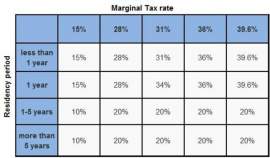
Estate Planning Defined

Must Read
Estate Planning Defined:
Estate planning refers to the process of arranging and dispersing the assets of an estate. This process typically attempts to diminish any uncertainties that pertain to the administration of a probate. The goal of estate planning is to maximize the value of the underlying estate through the reduction of taxes and other expenses attached to the assets and property.
Estate planning is the legal process required to distribute the assets and monetary packages that are left over after the disposal of an estate. In most instances, relatives or guardians of the entity’s estate are dispersed through the process.
Estate planning utilizes various devices to expedite the process. Estate planning will typically involve beneficiary designations, the delivery of wills and trusts, powers of appointment, rights of survivorship, tenancy in common, powers of attorney, gifts, and property ownership issues.
Estate planning, in essence, is the systematic approach to organizing an individual or entity’s personal and financial affairs. This process is realized when an individual is approaching an advanced age or undergoes an ailment that irrevocably alters their mental capacity.
Estate Planning Process
When considering estate planning, the first step needed in the evaluation process, is to assess the underlying family situation and the financial status of those involved. When estate planning has been determined, the inclusion of a qualified estate planning lawyer is necessary.
Once an estate attorney has been hired, the next step is to create and build the foundation of the estate plan. Depending on the family and financial situations, the estate plan will include the following estate planning documents:
1. Will-Based Estate Planning: If the family and financial situations do warrant the inclusion for a Revocable Living Trust, the foundational estate plan will include these legal documents: 1.) A Last Will and Testament; 2.) An Advance Medical Directive; 3.) A Living Will; and 4.) The Financial Power of Attorney.
2. Trust-Based Estate Planning: If the family and financial situations call for the development of a more complex estate plan, the foundation of the estate plan will include the following legal documents: 1.) Pour Over Will; 2.) Revocable Living Trust; 3.) Advance Medical Directive; 4.) A Living Will; 5.) A Financial Power of Attorney
Estate Planning Documents
• Last Will: A last will is a legal document that covers the following points after death: 1.) Who is in charge of the deceased estate; 2.) What powers the Personal Representative or Executor will possess; 3.) Who will inherit the underlying property; 4.) How will the property be transferred to the recognized beneficiaries.
• Revocable Living Trust: This legal document contains instructions covering the following periods of an individual’s life: 1.) What happens while the individual is alive and well; 2.) What happens if the individual becomes mentally incapacitated; and 3.) What happens after the individual dies.
• Advance Medical Directive: Also referred to as a Medical Power of Attorney, this title allows an individual to designate a health care representative to make medical decisions for the estate owner, assuming the individual cannot make decisions for themselves.
• Financial power of Attorney: A financial power of attorney allows an individual to manage the assets that were owned by the estate owner.
NEXT: Estate Planning Basics





















